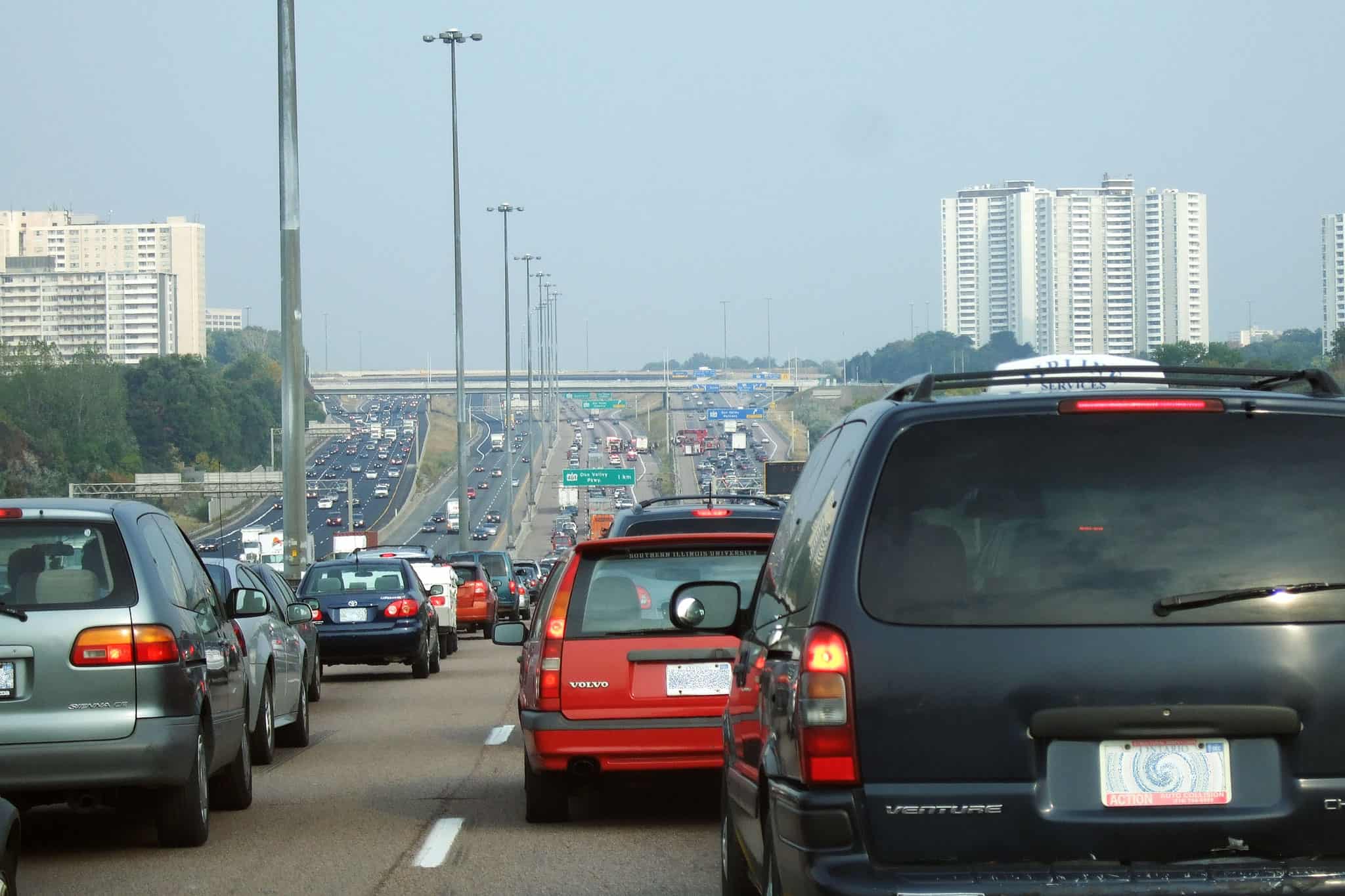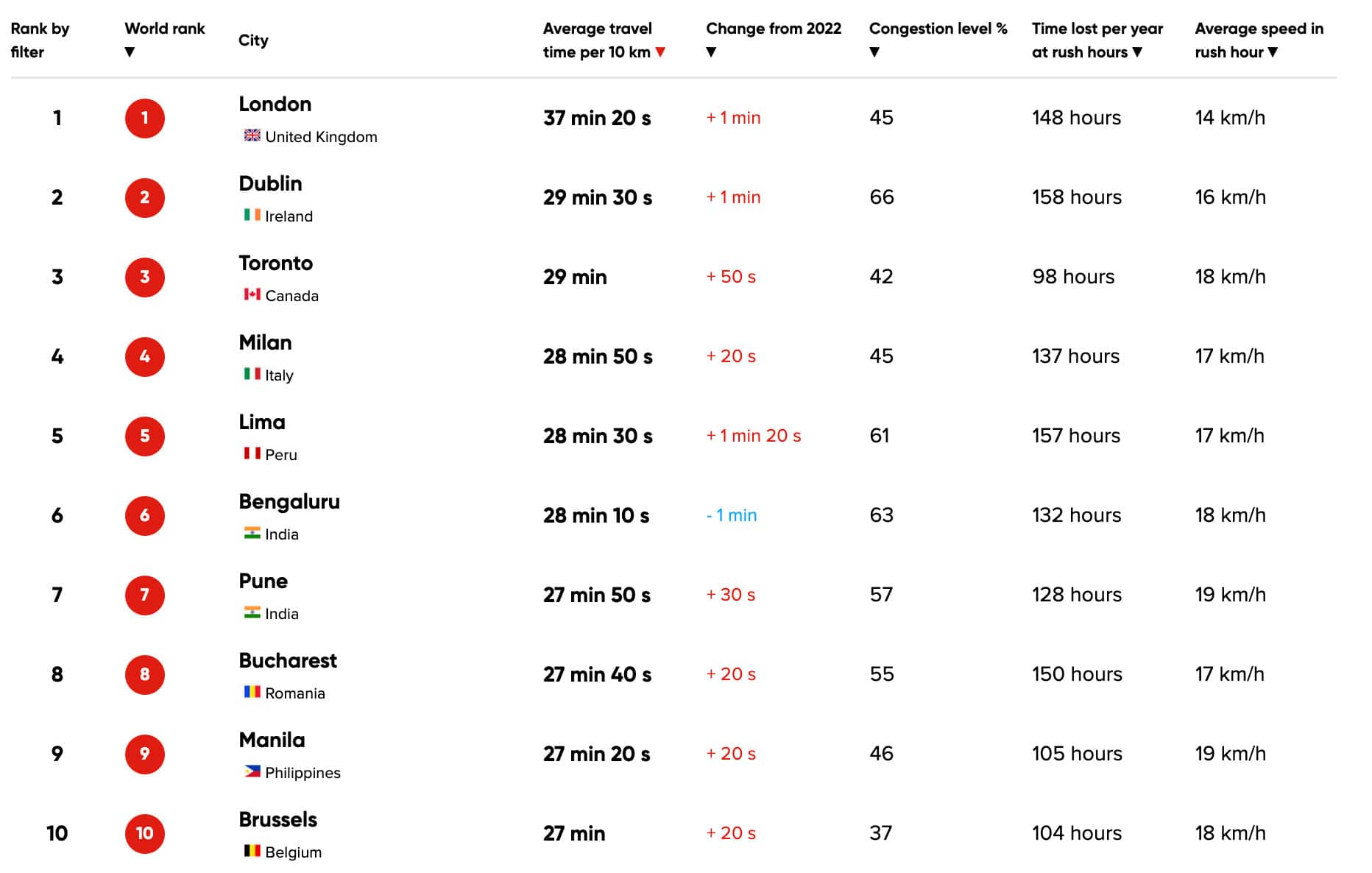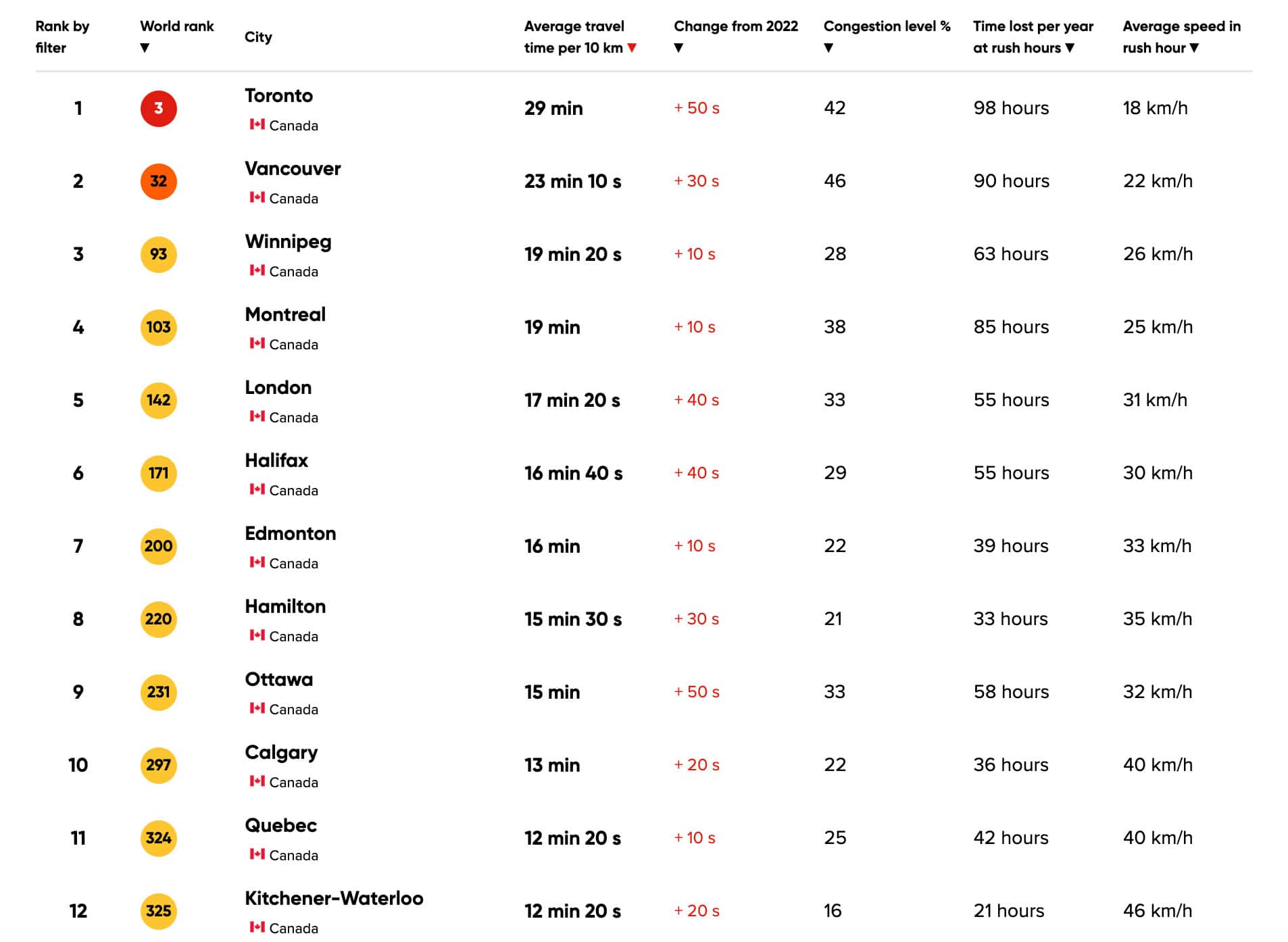Toronto traffic rated third worst in world, 3 other Ontario cities make the list
Published January 11, 2024 at 1:43 pm

Toronto’s traffic has been ranked as the worst in North America and the third worst in the world.
TomTom, a geolocation technology company, just released its annual TomTom Traffic Index, and Toronto is at the top of the list for 2023 data. The index is based on data from over 600 million in-car navigation systems and smartphones.
London, England and Dublin, Ireland are the only cities in the world with worse traffic woes.
In Toronto, it now takes an average of 29 minutes to travel 10 kilometres, this is an increase of 50 seconds from 2022, according to the index.
Drivers lose an estimated 98 hours a year in Toronto rush hour traffic — that’s like losing a long weekend and not in a fun way.
During rush hour, commuters travel a mind-numbingly slow average of 18 km/hr.
In Dublin, it takes 29 minutes and 30 seconds to drive 10 kilometres, and Londoners face a whopping 37 minutes and 20 seconds to travel the same distance.
In North America, Toronto now has worse traffic than Mexico City (26 minutes and 30 seconds) and New York City (24 minutes and 30 seconds), according to TomTom’s data.

In Canada, Vancouver (23 minutes and 10 seconds) and Winnipeg (19 minutes and 20 seconds) are ranked second and third.
Other Ontario cities to make the list are London (17 minutes and 20 seconds) ranked number five, Hamilton at number eight in Canada (15 minutes and 30 seconds), and Kitchener-Waterloo (12 minutes and 20 seconds) at the bottom of the list of Canadian cities as number 12.

The trend over 2023 confirms the general decline in average speeds in most cities: of the 387 cities analyzed in the traffic index, 82 saw their average speed remain unchanged, and 77 had a higher average speed (and therefore shorter journey times) than the previous year, according to a press release from TomTom.
“With more than half of the world’s population living in urban areas, traffic congestion and its economic, ecological and health consequences have become a problem that needs to be urgently addressed”, said Ralf-Peter Schäfer, vice president of traffic at TomTom.
“Planning the future of urban areas is essential to ongoing traffic management.”
The TomTom Traffic index evaluates 387 cities around the world for their average travel time, fuel costs and CO2 emissions.
For more information, see the TomTom Traffic index here.
INsauga's Editorial Standards and Policies

